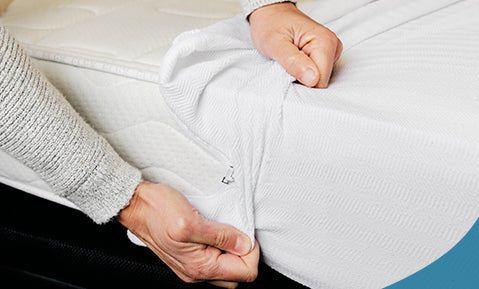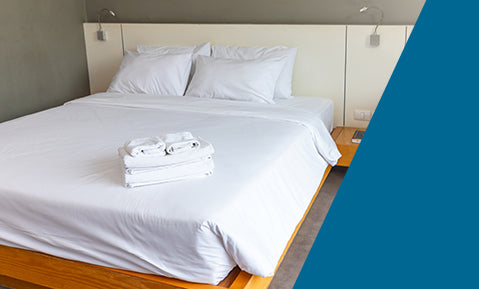
The armed forces work hard, so that we can get our sleep peacefully.
Do you know, as per the National Library of Medicine, on average 60 percent of US service members have slept less than 6 hours, every night, and in some cases even less than 5 hours.
The matters might become grave during overseas deployment, for instance at the Operation in Iraq, an average soldier slept 5.8 hours. Sleep is a vital part of our lives and members of the military are no different. It is essential for our men and women to get enough rest in order to maintain physical and mental health and to be able to perform national duties to guard the nation effectively. Unfortunately, due to the nature of military life, it can be difficult to get the desired necessary sleep.
The first issue is the amount of time available for sleep. Military personnel are often on duty for long hours and may not have the opportunity to get the amount of sleep they need. Additionally, they may have to work in unpredictable circumstances and may have to adjust their sleep schedule accordingly. This can lead to a lack of quality sleep, which can have a detrimental effect on physical and mental performance.
The second issue is the quality of sleep. Military personnel often have to sleep in unfamiliar environments and under stressful conditions. This can lead to difficulty in falling asleep, disturbed sleep, and a decrease in total sleep time. Additionally, noise and other distractions can further disrupt sleep.
In order to improve sleep quality, the military has implemented certain practices and regulations. For example, members of the military are urged to keep a consistent sleep schedule and to avoid alcohol and caffeine before bed. Additionally, napping, exercise, and relaxation techniques may be beneficial.
How much do military soldiers sleep?

Military soldiers typically get 6-8 hours of sleep, depending on the mission and operational tempo. In some cases, they may get less or more, depending on the situation.
In basic training, sleep deprivation is an important part of the training process. Long days and nights of rigorous physical activity prepare recruits for the rigors of military life. As a result, new recruits often find themselves sleeping only four to five hours a night. This is not ideal, but it is often necessary to prepare them for the high operational tempo of the job.
Once a member enters active duty, they may find themselves sleeping in shifts. This may involve working a full day and then sleeping for a few hours before waking up and performing another shift. This type of pattern can be very disruptive and can lead to fatigue, stress, and poor performance.
As a member progresses in their career, they may find themselves sleeping more regularly. However, their sleep may still be interrupted by deployments, exercises, and other military operations. During deployments, a military member may find themselves dealing with extreme sleep deprivation or inconsistent sleep schedules.
How much sleep do military soldiers need?

When it comes to sleep and the military, the amount of sleep a soldier needs is often overlooked. The fact is, military members are expected to perform at high levels and maintain a high level of alertness throughout the day, so it’s important that they get the right amount of sleep.
Recent studies suggest that military personnel need between seven and nine hours of sleep each night to function optimally. This is the same amount of sleep recommended for the general public. However, military personnel often have to work longer hours and may not have the same access to sleep that civilians do.
In addition to getting enough sleep, it is also important for military personnel to practice good sleep hygiene. This includes avoiding caffeine and alcohol before bedtime, going to bed and waking up at the same time each day, and avoiding screens in the bedroom.
In some cases, military personnel may require more sleep than the recommended seven to nine hours due to a number of factors, such as stress, physical exertion, or shift work. In these cases, it is important to get enough sleep in order to stay alert and perform at a high level.
In summary, military personnel need to get the recommended seven to nine hours of sleep each night to perform.
Sleep method in military
The military sleep method is a way to get the most out of a limited amount of sleep. It involves breaking down sleep into shorter periods throughout the day, rather than a single block of sleep.
The method involves sleeping in 20-minute increments, four times a day. In between these periods, it is important to remain active and productive. This is done by taking short breaks and engaging in light physical activities.
This method is beneficial to those who have a limited amount of time to sleep, such as those in the military or other similar situations. It can help to increase alertness and improve overall productivity.
Steps to get sleep in military
- Prepare for sleep: Ensure the area is secure and all safety protocols are in place. Change into comfortable clothes and wash your face, brush your teeth, and change into comfortable and clean bedding.
- Relax: Take some deep breaths to relax your body and mind. Do some stretches or practice relaxation techniques if needed.
- Neutral position: Lie down on your back or side in a comfortable position, basically spine position should be neutral.
- Sleep: Start to drift off to sleep by counting down from 100. Focus on your breathing and keep your thoughts away from stressful situations.
- Wake up: Set an alarm and wake up at the same time each day in order to maintain a regular sleep schedule. Start your day with a few minutes of stretching or other relaxation techniques.
Why military get less sleep

Sleep is a critical component of physical and mental health, so it is important for soldiers to get adequate rest. Unfortunately, military personnel often get less sleep than the average person due to their demanding lifestyle and the need to stay alert and prepared for any situation.
One of the most common reasons why military personnel get less sleep is because of their demanding schedules. Military personnel often have to be on call 24 hours a day, and they may have to be ready for deployment at any time. This can lead to long shifts and shorter sleeping periods due to the need to stay alert and ready for action.
Another reason why military personnel get less sleep is due to the stressful environment they work in. War zones and other hazardous areas can be extremely stressful, and this can prevent soldiers from getting adequate rest. Additionally, the fear of being attacked or injured can lead to insomnia and other forms of sleep deprivation.
Finally, military personnel may not be able to sleep due to the equipment they are carrying. Soldiers often carry heavy, bulky equipment that can make it difficult to sleep comfortably. This can lead to restless sleep, which can reduce the amount of restful sleep they get each night.
How does sleep affect military personnel?
- Poor sleep can decrease mental alertness and reduce the ability to think clearly and make swift decisions, which are essential to the successful performance of military operations.
- Poor sleep can have a negative effect on physical performance, making soldiers less able to run, jump, march and complete strenuous tasks.
- Poor sleep can lead to impaired judgment, which can be dangerous in a military setting.
- Poor sleep can lead to an increased risk of injury due to fatigue-related errors.
- Poor sleep can lead to a decrease in morale, which can ultimately affect the performance of a unit.
- Poor sleep can increase the risk of mental health issues such as depression and anxiety, which can further decrease performance.
Sleep disorders in military

- Insomnia: Insomnia is a common sleep disorder experienced by members of the military, especially those on active duty. It is characterized by difficulty falling asleep or staying asleep, resulting in decreased alertness and performance.
- Obstructive Sleep Apnea (OSA): OSA is a serious disorder that can cause significant health risks for military personnel. It is caused by blockage of the airway during sleep which can lead to loud snoring, choking, and other breathing problems.
- Restless Leg Syndrome: RLS is a neurological disorder that causes an irresistible urge to move the legs during periods of rest. This can lead to difficulty sleeping, which can be especially problematic for military personnel who need to stay alert during long periods of duty.
- Narcolepsy: Narcolepsy is a disorder that causes excessive daytime sleepiness and can lead to sudden and uncontrollable episodes of sleep during the day. This can be especially dangerous for military personnel who need to remain alert during their duties.
- Periodic Limb Movement Disorder: PLMD is a disorder that causes involuntary movement of the limbs during sleep, resulting in disruption of the normal sleep cycle.
- Shift Work Sleep Disorder: Shift work sleep disorder is a sleep disorder caused by working night shifts or having an irregular sleep schedule. This can lead to difficulty sleeping, difficulty waking up, and fatigue during the day in military personnel.
- Circadian Rhythm Sleep Disorder: A disorder in which a person’s circadian rhythms (the body’s natural clock) are out of sync with their desired sleep/wake cycle, resulting in difficulty falling asleep and staying asleep.
- Bruxism: A disorder characterized by grinding or clenching of the teeth during sleep, which can lead to excessive wear and tear of your jaws. It can happen due to less sleeping hours and nervous tensions.
Military is the heart and soul of a country. While they stay awake we sleep peacefully. The life of a military soldier is more tough than we can probably comprehend. Intensive working hours with less time for sleeping concerns are the day to day life of a military personnel. We can probably salute the soldiers in the borderline to make us feel safe.












